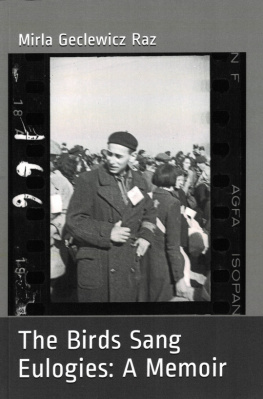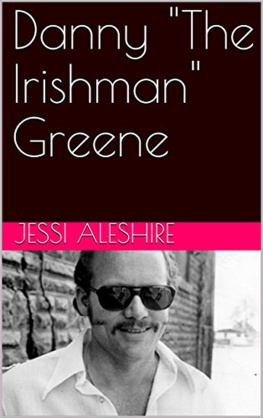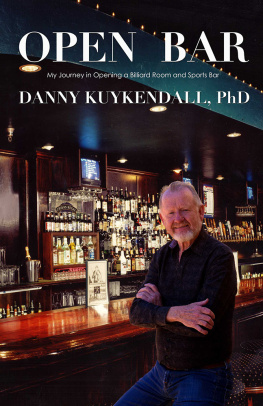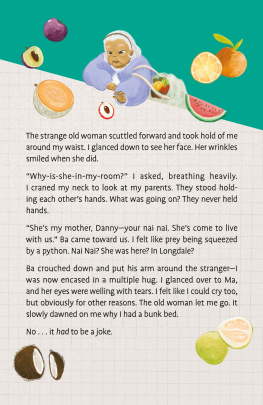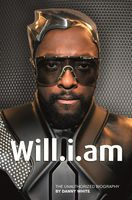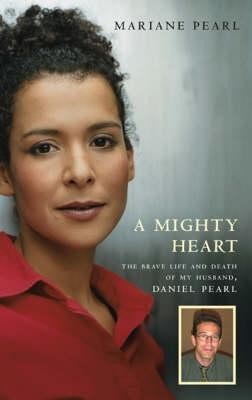THE BIRDS SANGEULOGIES
A MEMOIR
BY MIRLA GECLEWICZ RAZ
Copyright 2019
Library of Congress ControlNumber: 2019904426
ISBN: 978-0-9635426-6-3
All rights reserved. No part of thispublication may be reproduced, stored in a retrieval system, ortransmitted in any form or by any means, electronic, mechanical,photocopying, recording or otherwise without the prior writtenpermission of the copyright owner.
Cover page photograph by Henryk Ross
Resident (Gedalia Geclewicz) tagged fordeportation to Auschwitz, Lodz Ghetto, 1942-1944
Gift from Archive of Modern Conflict,2007
Cover photo Art Gallery of Ontario
In memory of mybeloved parents, Anna and Daniel Geslewitz, and my grandparents,aunts, uncles and cousins who perished in the Holocaust.
Butwe Jews oppose the Nazis determination to destroy and annihilatethe Jewish people with our own determination to remember, with ourprecise and intransigent Jewish memory.
his conscience as a Christian was able to accommodate theNazi regimes anti-Semitism.
Beate Klarsfeld,Hunting the Truth: Memoirs of Beate and Serge Klarfled, 2015
Contents
Dannys Story
?
My Story
I am a member of a group called the SecondGeneration. Each person of this community is a member for their ownpersonal reasons. Some members derive comfort from sharing storiesof their lives with other children of survivors. The survivorsbelieved only other survivors could truly understand what they wentthrough. There are children of survivors who feel that way abouttheir lives as survivors children. Other members wish to educateyoung people about the Holocaust. They feel the obligation to carryon the legacies of their parents so that the Holocaust is neverforgotten or denied once all the survivors are gone. Each of us hasdealt with our parents traumas in our own way.
It is hard to explain what it means to be achild of Holocaust survivors and to have been cut off from nearlythe entirety of ones roots. What would it have been like to havegrandparents and a large extended family? What were my grandparentsand my aunts and uncles like? Who do I look like? I grilled myparents on the physical appearances of their parents and brotherand sisters. You have my mothers hair, my father said. And she wasabout your height. But, I will never really know because neither mymother nor father has a single picture of their lives before theHolocaust.
I think back to my visit to Auschwitz. Iremember looking around at the pictures of European Jews. Iremember seeing the men, women and children who had made up thefabric of European Jewish life for centuries. Their lives had beenhard. They lived through pogroms. They faced discrimination by theChristians who surrounded them. The governments, whose job it wasto protect them, did not because, in most cases, governmentofficials were complicit in the discrimination and pogroms againsttheir Jewish citizens. Life was not easy for my people. And thencame Germany with its Hitler and Nazis. Who knows how many futuredoctors, scientists, and teachers were murdered, children who wouldhave one day grown up to help mankind.
The scars resulting from the traumas of theHolocaust survivors never went away. There is life to theirmemoriestheir mothers, fathers, sisters, brothers, cousins, aunts,uncles and friends and neighbors. Their fond memories alongside thehorrific. The normal alongside the abnormal. For the survivors onedoes not have one without the other. The survivors resurrectedtheir lives as best as they could. Their lives were a picture ofnormalcy. They had children who thrived and, for the most part,became successful citizens of their parents adopted countries.What could be more normal than that? Yet my father-in-law used tosay that one cannot have survived the Holocaust and be normalafterward. My father fought against this idea, believing that thesurvivors remained normal despite the Holocaust. Who is right?
To understand what happened I have to suspend mybeliefs in what is normal. To understand what happened I have tosuspend my beliefs in what is sane. I have to let go and believethe stories because they are not fiction. Even so, I will find itimpossible to understand that world and time. But I must try tounderstand. An impossible task because only those who lived throughit can understand the story of human degradation at its absoluteworst. If I deny the story or lighten it, I will never understandthe horrendous acts our species can commit, nor will I everunderstand the expanse of human resilience and existence. Whypeople fight to live. How they succeed. So, I take myself out of mycomfort bubble and believe.
I am the beneficiary of one of the greatesttragedies the world has ever known. My luck is firmly rooted in thecataclysmic bad luck of European Jewry. Were it not for thiscolossal tragedy, my parents most definitely would not have met,married nor had my sisters or me. That I am an heir of this epictragedy makes me keenly aware that my parents, their parents,sisters, brothers, cousins, nephew, friends, neighbors and millionsmore Jews suffered before it could happen. My good fortune, beingborn after WWII, did not come without a price. I never had theopportunity to meet my grandparents, aunts, uncles, a first cousinand other extended family members. One maternal aunt and onepaternal uncle survived out of a total of twelve. Other than aprewar picture of my paternal great aunt, I have not one picture ofany family member taken before the war. Yet, I was fortunate that alittle piece of my European family survived. There are familiesthat were entirely obliterated or only one family member is thesole survivor.
In most ways, my life growing up in the UnitedStates was typical of children born to immigrant parents. Myparents felt most comfortable around other European survivors whohad shared similar lives in Europe. Our food was similar, theycould converse in Yiddish or Polish, and their values remainedEuropean.
As the first born, I was immersed in two foreignlanguages from birth, so learning other languages was easy for me.Growing up, my American life had little to do with my parentsexperiences, which is exactly how my parents wanted it. They wantedmy sisters and me to only know the good in life and to live in acountry where we could grow up Jewish and safe. My parents tookfull advantage of what America offered. They would work hard sotheir children would have better lives. Their children would go tocollege. Everything was possible in America.
Sometimes the Old World conflicted with theAmerican model. The big challenges for me began when I became ateenager. My parents found it difficult to adapt to the freedoms ofAmerican teenagers. Everything became a fight. Then again, theteenage years are fraught with parents and teens having to put upwith one another. But there were battles my friends did not havewith their parents. For one, having them agree to allow me to goaway to college was preceded by huge wars. They finally gave in butinsisted on no more than an hour driving radius. My father had atimeline that coincided with European ideas of what young womenshould do. The day I finished college was the day my father decidedthat I had to find a husband to take care of me. That was histimeline. Get a college education, get married and have children.He pressed me to go into teaching since I would have the same hoursas my future children. Yet, at other times, he was more forwardthinking. He often encouraged me to become a doctor or lawyer.
Did being the child of parents who had been inthe Holocaust have its emotional impact on me? I find it hard towatch movies or read about it. I tend to have little patience withpeople, especially Jews, who make innocent but ignorant commentsabout the Holocaust. I was talking with a Jewish friend whosemother was born in America and whose father was from Canada. I toldher that I wanted to talk to her mother about what she knew aboutEuropean Jewry during the Holocaust years. My friend asked me why Idid not ask my parents when they were alive. I told her that theydid not arrive until 1950. She said, Oh, I thought they came inthe 40s. I immediately lashed out at her and said, There werehardly any Jews who could get here in the 40s! Her reply was,Well, some Jews did. I didnt tell her what my parents had saidabout the ignorance of American Jews and their uncaring attitudesvis a vis the survivors. I told her that she needed to becomebetter informed about the Holocaust. She accused me of talking downto her.

